Car servicing: your complete guide
Confused by how, when and where to get your car serviced? Keep reading for all the ins and outs to car servicing
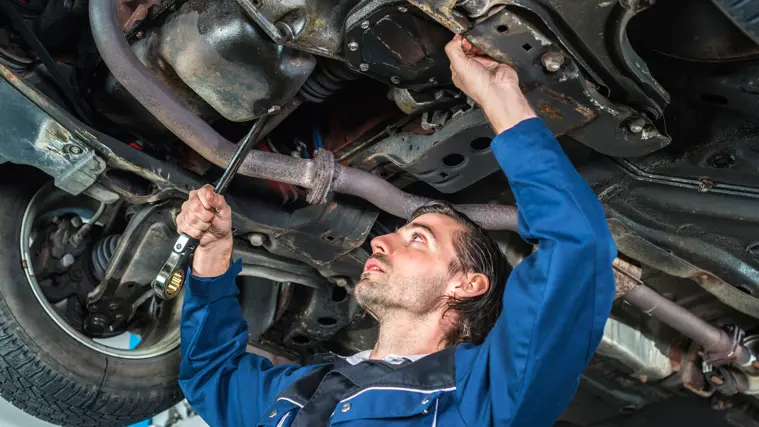
Having your car serviced is essential, since it helps to ensure it remains in good condition and should mean it lasts longer, too. More than this, getting the car serviced on time is normally a condition of most warranties and finance agreements. However, it’s something that many drivers find stressful.
A large proportion of motorists worry about paying over the odds - and this is a particular concern since so many people think they have been ripped off by a garage in the past. The process of maintaining a car can be expensive. During a routine service, charges are typically calculated using a combination of the cost of replacement parts required and the time taken to do the job, expressed as an hourly rate.
Not only do parts prices vary dramatically by make and model, though, but labour rates fluctuate substantially too. This isn't just affected by the brand of car, but where you are in the country as well. However, caring for a car is important. In the simplest terms, following the maintenance schedule specified by the vehicle manufacturer should ensure that a car remains in good condition and safe to drive.
That last point is especially important. Nobody wants to pull onto a dual carriageway and have the engine cut out, or go to slow for a junction when coming off a motorway and find that their brakes are totally worn out. But how do you know which garage to use and are there occasions when you must use one type of garage or workshop over another? We answer the most common servicing questions below.
I have a car on PCP or HP: does my car need to be serviced?
In short, yes. Every car needs to be serviced regularly in order for it to continue to work properly. Regular servicing ensures your car performs above all safely, as well as efficiently. Many problems with older petrol and diesel cars can be traced back to a lack of routine servicing. Modern engines especially can be sensitive to poor-quality oil and clogged filters.
Additionally, having a thorough service history can directly influence the value of a car. This is important whether you paid cash for the car, used Hire Purchase (HP) - where you'll own the car once you've made the last payment - or you go for PCP finance and plan to make the optional final payment at the end of the contract to take ownership of the car. That's because at some stage you'll come to sell the car and failing to service a car could slash thousands from the price you get.
Meanwhile, if you're using PCP finance and plan to hand the car back at the end of the contract or you're leasing it with a Personal Contract Hire deal, chances are that your contract specifies that you must service it on time or risk being charged a financial penalty. The reason for this is that you don't own the car and failing to service it will reduce its value for the owner - the finance or leasing company.
A car with no history of maintenance could lose sellers thousands of pounds, according to car valuation experts CAP HPI. Derren Martin, head of current valuations at CAP HPI, says: 'If buying a three-year-old Volkswagen Golf, for example, it could be around 10-12% of the vehicle's value. A full-service history from a franchise dealer will affect both value and desirability.'
Manufacturer main dealer or independent garage service?
Main dealer garage advantages
✔ Vetted and monitored by the car maker
✔ Fully trained in the make of car with the correct tools
✔ Can carry out warranty work
Main dealer garage disadvantages
✘ Hourly rates are among the highest
✘ Only uses OE (original equipment) parts which are expensive
Independent garage advantages
✔ Can be much cheaper than a main dealer in hourly rates and part prices
✔ May be happy to repair parts rather than just replacing them
✔ Tend to have greater experience in older vehicles
Independent garage disadvantages
✘ May not be aware of the latest technical service news
✘ May not have the latest tools and diagnostic equipment
✘ Mechanics may be less experienced or not as well trained in particular makes or models
Do I have to get my car serviced by a main dealer?
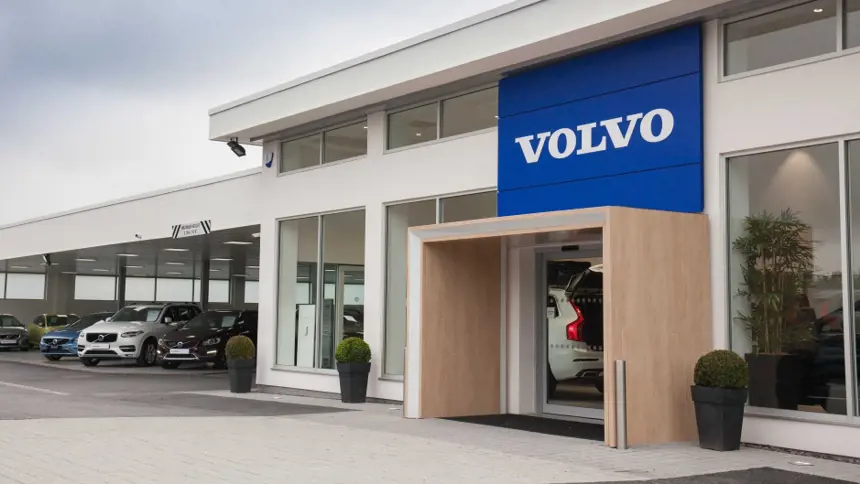
This gets to the heart of shopping around for servicing. The good news is that you’re free to have your car serviced by whichever garage you like. This is thanks to a law passed in October 2003. Before that date, car makers could insist your car was serviced by their dealers during the term of their new car warranty. They had no control outside the warranty period.
Since the law was passed, motorists have been free to take their cars to any garage they choose, main dealer or independent, while it’s still under the new car warranty. However, services must be performed to the manufacturer’s schedule and approved parts must be used. The car’s owner must also keep records (a stamped service history and invoices itemising work carried out) proving the work was carried out.
Can I have my used car serviced by any garage I choose?
Yes, you can, but if it’s covered by a used car warranty you should check the terms and conditions contained in the small print. A few insist the car is serviced by the selling dealer.
This is rare, however, and instead, like the rules surrounding new car warranties, you’re more likely to be free to have the car serviced wherever you please, as long as this is to the manufacturer’s schedule and evidence of the work is available.
Do cars on PCP finance have to be serviced by a main dealer?
No - regardless of what sales staff may suggest. The same law that allows you to have your new car serviced by an independent garage during its warranty period applies with a PCP contract or any other financial product.
However, you may find it easier to have it serviced by a main dealer rather than an independent garage to ensure it is looked after according to the manufacturer’s schedule. In any case, to keep your business, most car makers offer subsidised servicing plans with new cars purchased on PCP finance, so if you go for a new car you may find this included. Sometimes servicing packs may be transferrable, too, meaning that used models may also include a certain amount of main dealer servicing.
How to find reputable garages near me
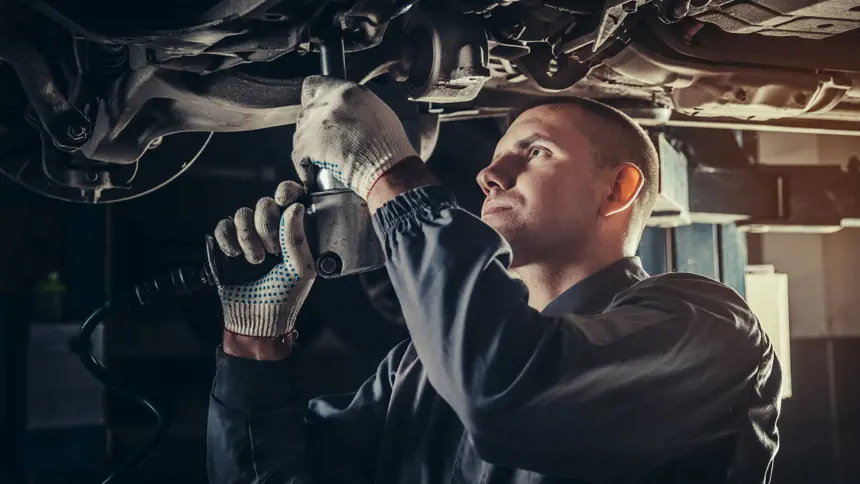
Every car manufacturer will have a dealer locator function on their website. But for added peace of mind, browse sites such as motorcodes.co.uk, or the themotorombudsman.org. These help motorists find a local garage that meets certain standards, or is approved by the Office of Fair Trading.
Is a car worth more with a main dealer service history?
Used car buyers normally pay more for cars with what is called a full service history. This refers to the situation where a car has had every service due carried out on time, according to the manufacturer’s schedule. However, that price can be higher still, at least for newer cars, or high-value luxury models or high-performance cars, where all the services have been carried out by main dealer garages rather than independent ones.
Once a car is older than three years, the price difference closes, except on some prestige and specialist cars where a full main dealer history means a car islikely to still fetch a premium. Whether you can justify paying more for main dealer services depends whether you are using a finance product where you will own the car at the end of the contract.
If you use Hire Purchase or PCP finance and you make the optional final payment to buy the car at the end of the contract, you will own the car, so it's more in your interest to spend a little more on main dealer servicing along the way, as you'll get more money back when you come to sell the car. If, however, you're leasing the car, or you have a PCP contract and intend to return the car when the contract ends, getting the best value servicing that meets the finance or leasing company's requirements is likely to be the best move from a financial point of view.
What's the benefit of a main dealer service history?
If your new car warranty has expired but your car develops a fault soon after, it can help having full main dealer service history when it comes to getting the manufacturer to address the problem, since the manufacturer is likely to look more kindly on your claim.
If the car has only been serviced by a main dealer, the manufacturer cannot blame any issues on shoddy servicing elsewhere. The manufacturer is not obliged to do anything specific once a car is out of warranty, but it may choose to make a contribution to repair costs as a goodwill gesture. Or if an issue first started during the warranty period and worsens just outside of it, it may also be more happy to help you than if you took your custom elsewhere.
What are variable servicing intervals?
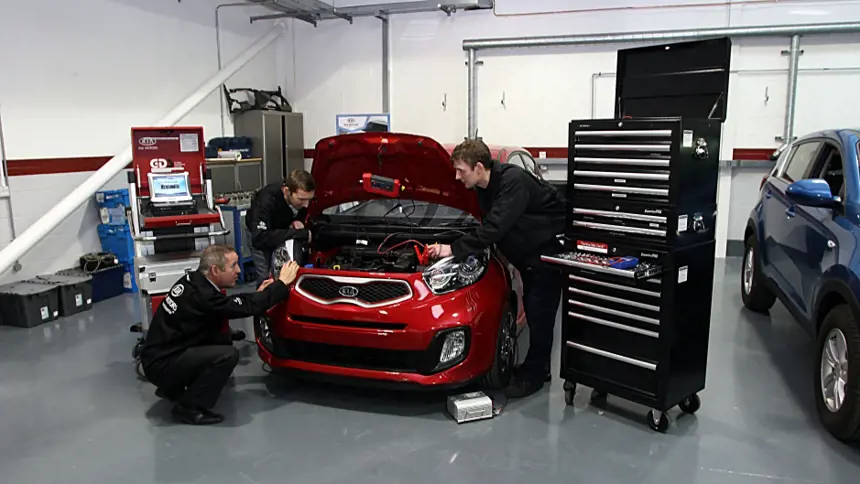
Variable servicing, where the service intervals are not fixed in a specified schedule but change depending on the way the car is driven and the sort of journeys it does, are becoming popular with car makers. Generally speaking, cars that do lots of short journeys where the engine gets less chance to warm up need more regular servicing than those that cover long journeys at full running temperature.
Some cars, such as Audis, offer drivers two types of service schedule. The so-called Fixed Service is for low-mileage drivers doing lots of short journeys, and is every year or 9,000 miles, since short journeys can result in more wear per mile than longer ones. The Flexible Service Schedule is for higher-mileage drivers and is every two years or 19,000 miles, since longer trips are likely to prove less demanding on the car.
Some cars tell you when they need servicing. For example, depending on the vehicle’s age, Minis have two types of service indicator. Current models have Condition Based Servicing (CBS). This monitors various service components for wear, ensuring the car only requests attention when it needs it. When the car requires servicing, a CBS icon will be displayed on the dashboard. In addition to this, the vehicle data is stored in the car key and can be read using a MINI KeyReader, allowing dealers and technicians to identify what work is required.
Earlier Minis have a mileage-and-time-based service indicator that monitors the car’s mileage and illuminates when it’s time for the next service. Additional warning symbols report the health of key components.
Variable servicing should ensure your car is maintained when it needs to be but the fact that it doesn’t follow set servicing intervals means it can catch you unawares. That said, things are far from critical when a car first alerts you, so you should have plenty of time to book the service specified.
Does my car need servicing after an MoT?
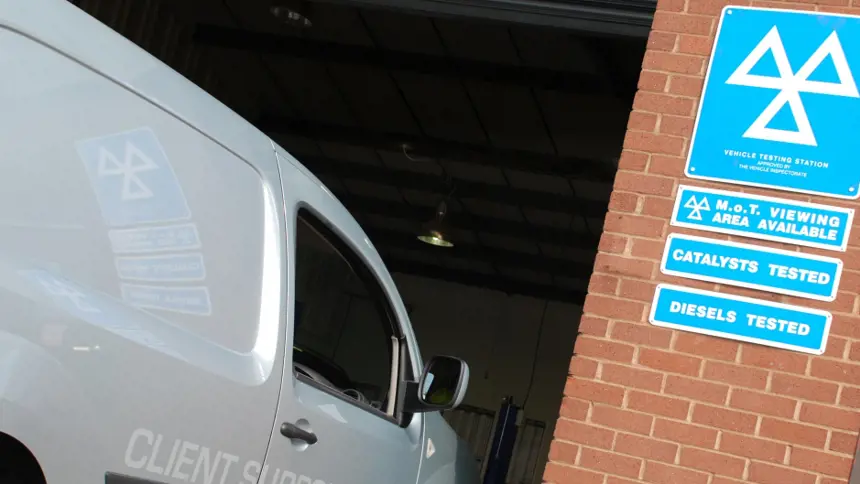
An MoT checks safety critical areas only, so while the test will tell you if your car’s tyres or brakes are worn, its windscreen washer fluid is low, its exhaust emissions are outside the legal limits or it’s dangerously rusty, it won’t attend to any of these problems and it certainly won’t prevent them happening in the first place.
Not only that, things like engine oil, spark plugs and air filters - the things your car relies on to run efficiently - won’t be checked or changed. This means that it's important to get the car regularly serviced as well as Mot'd every year, once it's three years old and above.
While a current MoT ensures that a car can legally be used on the road, keeping up to date with servicing should ensure that the car remains in good mechanical condition and should have fewer mechanical issues in the pipeline, by repairing key components before they fail and are flagged in the MoT.
What is a service interval?
This is the maximum gap - presented as a maximum time period and/or maximum mileage - that there should be between services. With many cars the interval is every 12,000 miles or 12 months, though some cars have intervals of up to 24 months, while the mileage limit can be up to 20,000 miles or so in some cases.
If in doubt, you should be able to check the car's set service interval in the handbook. A manufacturer main dealer should also be able to tell you what the interval is for your specific car by looking up the number plate, or if you tell them the age, engine and specification of your car.
What are intermediate (or interim), main (or full) and major services?
These describe different types, or levels, of service. The simplest is the intermediate and tends to be every six or 12 months. This may include an oil and filter change - one of the most important things you can have done in a service, since the oil helps to keep the engine running healthily. Many major mechanical components will be checked in the process, too.
The full service is like a more intense version of the intermediate. One of these may be required each year or every 12,000 miles, and should be sufficient to keep most cars in good working order. More components will be checked and fluids (for example, brake fluid and coolant) will be topped up if necessary.
The major service typically takes place every two years or 24,000 miles and in addition to the work carried out in the minor service, is likely to involve even more checks and maintenance actions including changing the engine coolant, spark plugs and all filters.
Compare car service quotes

Manufacturer main dealer garages generally will have a rate card that means every job should be priced according to the cost of any replacement parts, how long the job ought to take and the labour rate. So start your comparison with them. Often manufacturers have set service prices across the country - sometimes there may be lower cost equivalents for used models, too.
Once you have these figures, you can then compare them with what independent garages would charge. Most will work to standard prices for a major or minor service, and have costs for common jobs. Their labour rates are lower than main dealer outlets normally, and they can often source spare parts at highly competitive rates.
Always be clear over the jobs being performed and that these fulfil the car maker’s service schedule. Often independent garages that specialise in servicing certain makes/models of car will use original manufacturer parts, though they may be happy to use cheaper alternative parts if you ask them to.
Check ratings and prices online
There is a wave of newly established garage comparison websites for drivers to use. Just as you might compare car insurance quotes and scan customer satisfaction ratings online, so you can enter a postcode, make and model of car and choose from a list of jobs that need performing.
Local garages can choose to submit quotes and you get to see how highly other drivers rate their work. A quick Google search will give you plenty of choice.
Diagnosis? Is it free?
Unless you are on extremely good terms with a local garage, the likelihood is that all will charge for diagnosing a problem. After all, mechanics, tools and workshops don’t come for free…Most modern cars feature sophisticated electronics and may require pricey computer equipment to 'read' them. If your car needs to be plugged into this diagnostic equipment, you can typically expect a charge for this, too.
Authority to proceed
Any reputable workshop should contact you to highlight anything untoward or explain what was causing a fault, and giving a clear indication of the remedial work required and what that will add to the bill.
However, for the avoidance of doubt, tell them to contact you for authorisation should additional work be required. This should enable you to be confident of how much you'll have to pay, rather than having a surprise bill when you go to collect the car.
Genuine parts
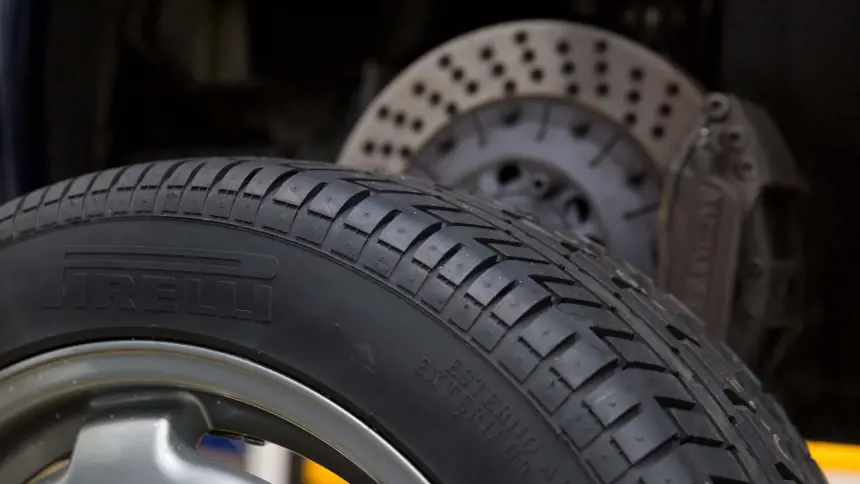
Wear and tear parts, such as brake pads, shouldn’t be replaced until they reach the end of their life, but many garages will advise you of the remaining life of such parts in their servicing report.
Branded, genuine parts should be exactly the same as the items fitted by the vehicle manufacturer the day it was assembled at the factory. However, these may be the most expensive option; frequently it is possible to request that the garage fit parts of comparable quality, saving a small sum in the process.
Use a credit card for bills over £100
You may want to use a credit card when paying for large bills. Why pay by credit card? Because if there is a fault with your car that is related to the goods and services provided by the garage, the credit card provider is jointly liable together with the retailer.
Unhappy with the work done?
You might not be happy with the work done, but if you signed a contract when handing over the car to the garage, you still have to pay. They are entitled to keep your car until the bill is paid - known as a 'lien' over the goods.
If you're in the situation where you're not satisfied with what the garage has done, make it known that you are paying under protest to release your vehicle, and maintain your right to challenge the bill.
